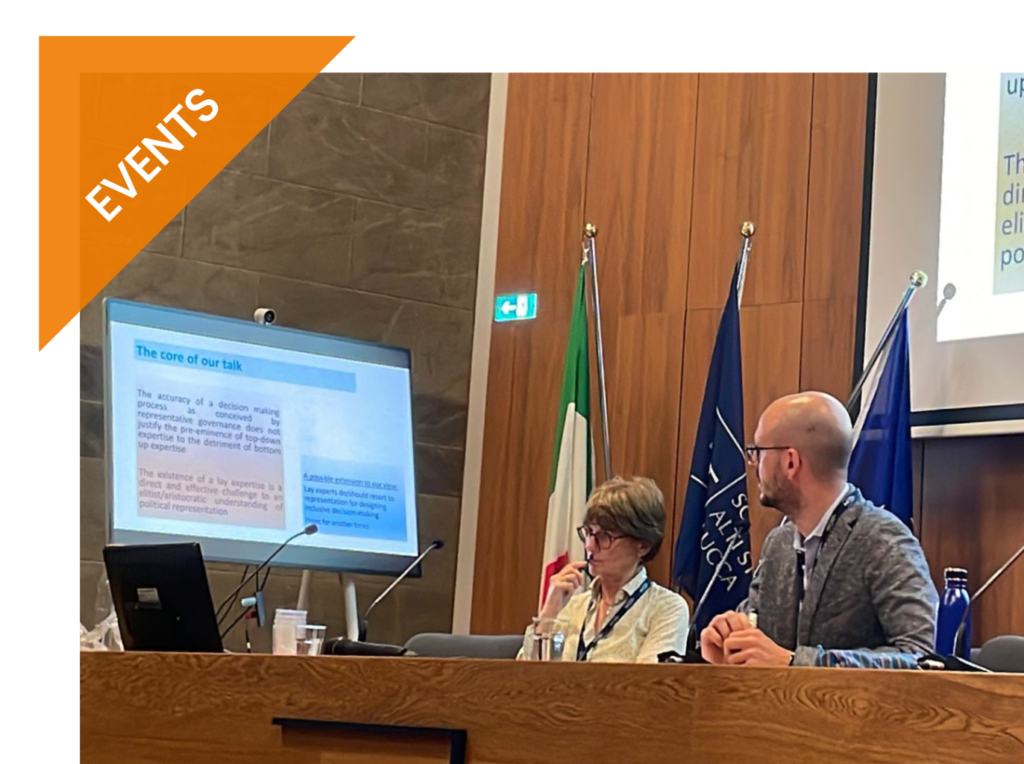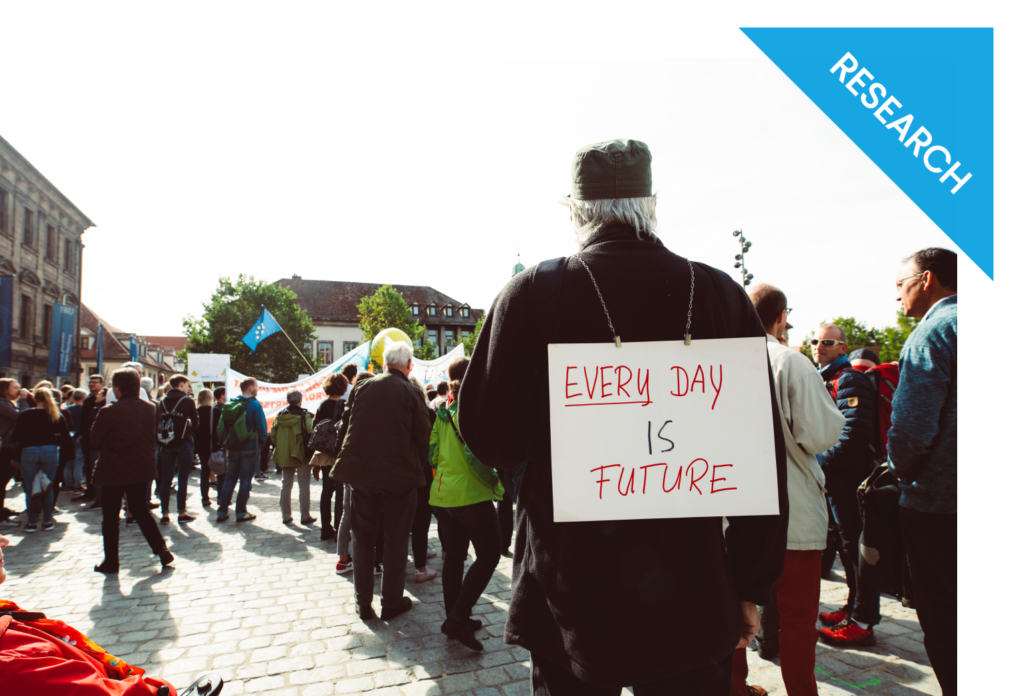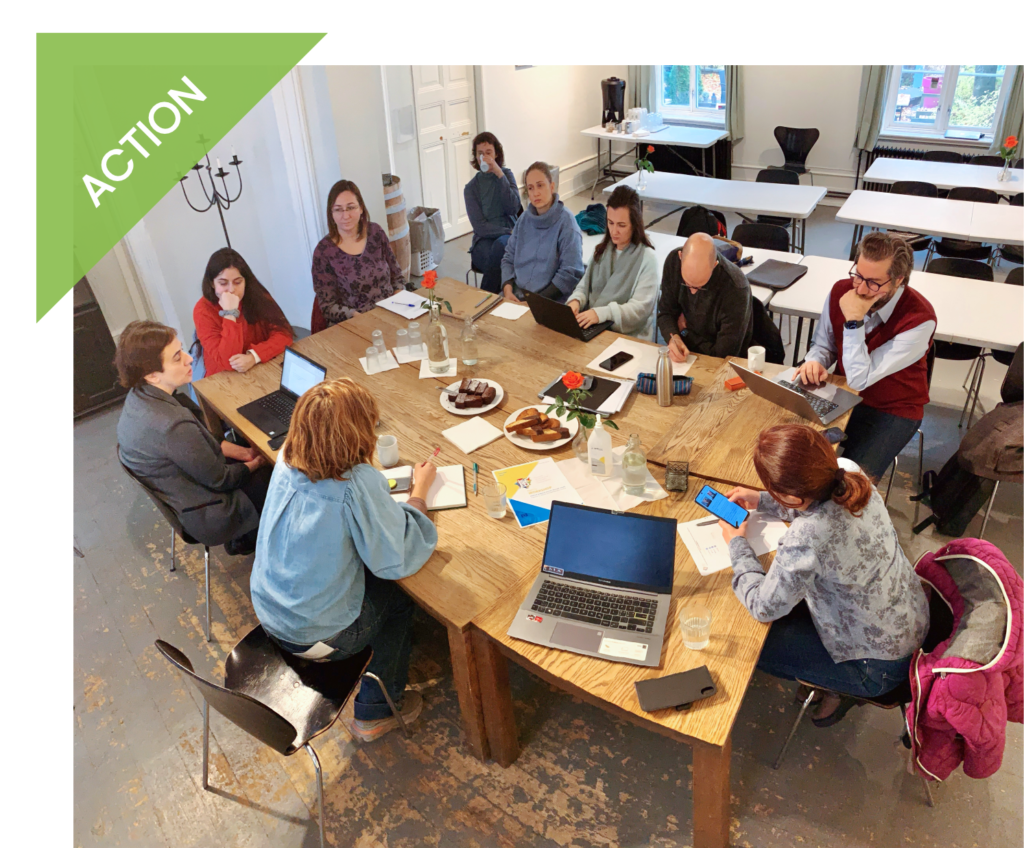June, 2023
June, 2023
ISEED project is making progress in its exciting research! Read about Feyerabend conference with our scholars and explorative scenarios about the future of democracy and citizen participation in science. On top of that, we are launching a series of Multi-Stakeholders Panel series!
Events
“The Role of Experts in Democratic Societies”, a Conference in honor of Paul K. Feyerabend

Four ISEED members took part in “The Role of Experts in Democratic Societies In Honor of Paul Feyerabend”. The conference was organized by the School for Advanced Studies Lucca (IMT), together with the Department of Civilization and Forms of Knowledge of the University of Pisa (UNIPI), and the Italian Society of Logic and the Philosophy of Science (SILFS).
Paul K. Feyerabend was an Austrian philosopher who lived and taught on three continents, spreading his works in different languages, involving a readership that extends well beyond purely academic circles. His work led to the emergence of several groups of scholars throughout Europe, including Italy. Feyerabend had a high opinion of the Founding Fathers of modern science but was bitterly sceptical of today’s figure of the scientific expert.
The role of scientific experts and their relationship with laypeople, examined through the philosophy of Paul Feyerabend, was an opportunity to further develop key results achieved within the ISEED project. Pierluigi Barrotta and Roberto Gronda‘s talk was focused on the role that scientific experts and engaged citizens can play in a public inquiry. While Eleonora Montuschi and Paolo Bodini discussed the notion of lay expertise and its role in representative democracy: in particular, the talk aims to show how lay expertise deconstructs an elitist account of political representation.
As part of the ISEED project, the conference is linked to the initiatives dedicated to the philosopher to celebrate the centennial of his birth.
Research
Explorative Scenarios for Democracy
Exciting news! We are happy to share that the ISEED project is making remarkable progress in envisioning the future of democracy and citizen engagement. As part of our efforts, we are developing a set of models featuring Explorative Scenarios that delve into the critical variables and indicators shaping this transformative journey.
These scenarios are being crafted based on an intricate combination of variables, impact pathways, and expert-based dialogues facilitated by our esteemed consortium partners and stakeholder panels.
Each scenario will present a unique vision for the future of democracy, focusing on the roles of citizens, governments, science, and technology. Assumptions will be carefully crafted, considering various forms of citizen participation, decision-making authority, institutional oversight, key actors, technological advances, regulatory frameworks, and the crucial role of knowledge (including citizen science-based formats) in shaping policies.
These scenarios will offer different versions of “opening up” the democratic system, referencing specific instances of citizen engagement and governance models.

The draft scenarios will be summarized in the D6.3 report titled “Models to complement participatory and deliberative processes with traditional systems of representative democracy.” This report will shed light on how these scenarios can enhance and complement existing democratic systems. We invite you to stay tuned for more updates and insights as we continue to shape the path towards inclusive and participatory governance models.
Action
Multi-stakeholder Panel Series!
As part of the ISEED project, we are thrilled to have established a dynamic multi-stakeholder deliberation panel (MSP). This panel serves as a vital assessment and co-production chamber, playing a key role in shaping the scalability of active participation instances within our experimental core. To foster meaningful collaboration, we are organizing a series of online meetings, where our esteemed MSP actively engages in reviewing and providing valuable feedback on the project’s outputs.

The culmination of these efforts will be presented in the synthesis report, “Insights from multi-stakeholder deliberation panels”. This comprehensive document will showcase the collective wisdom and contributions of our multi-stakeholder panel, providing valuable insights for the ISEED project.
Together with our multi-stakeholder panel, we are committed to ensuring broad public engagement and facilitating democratic deliberation. The ISEED project values diverse perspectives and aims to foster an inclusive environment for shaping the future of citizen participation. Soon there will be exciting updates as we continue our journey towards democratic transformation! Stay tuned!
Our MSP comprises 10 members. We are honored to have Antonio Florida from Direzione Affari Legislativi, Giuridici ed Istituzionali; Rosina Malagrida from IrsiCaixa; Rosa Arias from Fundación Ibercivis; Francisco Lupiáñez from the Open University of Catalonia; Maja Lalic from Mikser; Dorte Riemenschneider from the European Citizen Science Association; Meie Van Laar from NEMO Science Museum Amsterdam; Norbert Steinhaus from Wissenschaftsladen Bonn; Francesco Mureddu from The Lisbon Council for Economic Competitiveness and Social Renewal; Fabio Feudo from Knowledge and Innovation; and Maria Hagrdt from Vetenskap and Allmänhet V.A.
Text: Eleonora Montuschi, Carolina Llorente Lope, Pierluigi Barrotta, IMT.
Edit: Jan Grzymski, Sarah Santos, Sophia Efstathiou.
Photo credit: Markus Spiske and Vlad Tchompalov on Unsplash
Last updated: 05/07/2023


